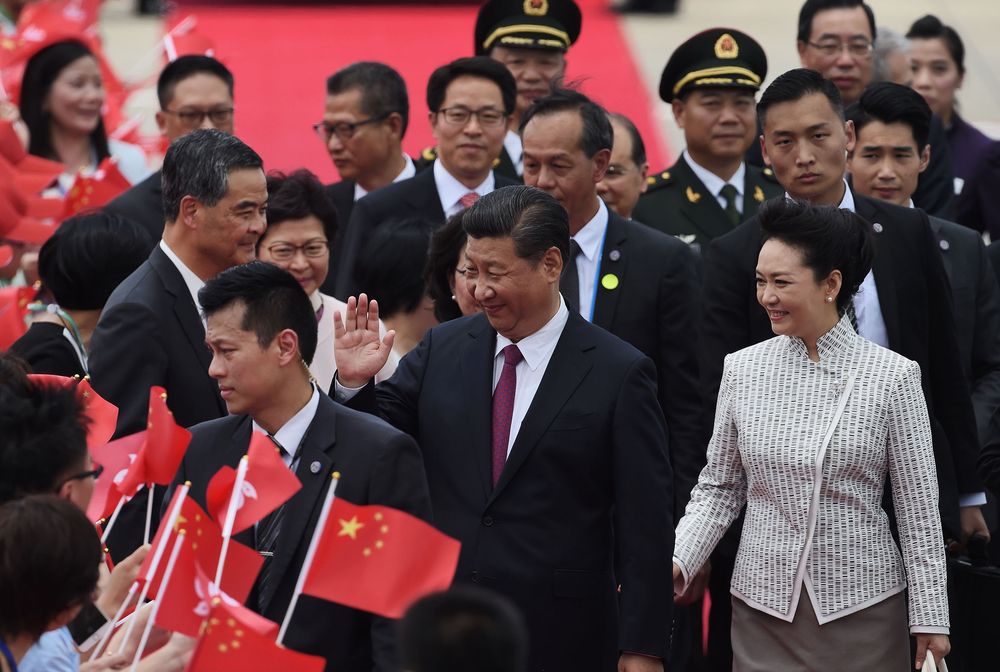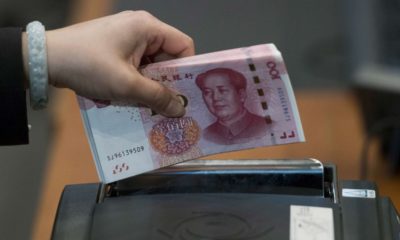- Xi Jinping Promises Lower Tariffs, Market Access at Shanghai Expo
China will lower import tariffs and continue to broaden market access, President Xi Jinping pledged on Monday at the opening of a symbolic week-long trade expo in Shanghai.
The Nov. 5-10 China International Import Expo, or CIIE, brings thousands of foreign companies together with Chinese buyers in a bid to demonstrate the importing potential of the world’s second biggest economy even as China remains embroiled in a trade row with the United States.
In a speech that largely echoed previous promises, Xi said China would accelerate opening of the education, telecommunications and cultural sectors, while protecting foreign companies’ interests and enhancing punitive enforcement for infractions of intellectual property rights.
He also said he expects China to import $30 trillion worth of goods and $10 trillion worth of services in the next 15 years.
Last year, Xi estimated that China would import $24 trillion worth of goods over the next 15 years.
“CIIE is a major initiative by China to pro-actively open up its market to the world,” Xi said.
U.S. President Donald Trump has railed against China for what he sees as intellectual property theft, entry barriers to U.S. business and a gaping U.S. trade deficit. No senior U.S. officials were set to attend the Shanghai event.
Xi said the import expo showed China’s desire to support global free trade, adding – without mentioning the United States – that countries of the world must pursue open policies and oppose protectionism.
He said “economic globalisation is facing setbacks, multilateralism and the free trade system is under attack, factors of instability and uncertainty are numerous, and risks and obstacles are increasing”.
China imported $1.84 trillion of goods in 2017, up 16 percent, or $255 billion, from a year earlier. Of that total, China imported about $130 billion of goods from the United States.
The Chinese government’s top diplomat, State Councillor Wang Yi, said in March that China would import $8 trillion of goods in the next five years.
Expectations had been low that Xi would announce bold new policies of the kind that many foreign governments and businesses have been seeking from Beijing.
Instead, people involved in planning meetings have said they were anticipating an event long on symbolism and short on substance meant to signal China’s willingness to narrow trade deficits and openness.
The European Union, which shares U.S. concerns over China’s trade practices if not Trump’s tariff strategy to address them, on Thursday called on China to take concrete steps to further open its market to foreign firms and provide a level playing field, adding that it would not sign up to any political statement at the forum.
Foreign business groups have grown weary of Chinese reform promises, and while opposing Trump’s tariffs, had longed warned that China would invite retaliation if it didn’t match the openness of its trading partners.
Presidents or prime ministers from 17 countries were set to attend the expo, ranging from Russia and Pakistan to the Cook Islands, though none from major Western nations. Government ministers from several other countries were also coming.
Swiss President Alain Berset did not make the trip to China, despite being announced as among attendees by China’s foreign ministry last week. The Swiss government said in a statement to Reuters on Sunday that his visit had never been confirmed, and that Secretary of State Marie-Gabrielle Ineichen-Fleisch would represent Switzerland.
Some Western diplomats and businesses have been quietly critical of the expo, arguing it is window dressing to what they see as Beijing’s long-standing trade abuses.
Exhibitors from around 140 countries and regions will be on hand, including 404 from Japan, the most of any country. From the United States, some 136 exhibitors will attend, including Google, Dell Inc, Ford (F.N) and General Electric (GE.N).
A handful of countries are being represented by a single exhibitor selling one product.
For Iraq, it’s crude oil. Iran, saffron. Jamaica will be marketing its famed blue mountain coffee and Chad is selling bauxite. Tiny São Tomé is selling package holidays.


 Billionaire Watch3 weeks ago
Billionaire Watch3 weeks ago
 Startups4 weeks ago
Startups4 weeks ago
 News4 weeks ago
News4 weeks ago
 News4 weeks ago
News4 weeks ago
 Bitcoin4 weeks ago
Bitcoin4 weeks ago
 Naira4 weeks ago
Naira4 weeks ago
 Forex3 weeks ago
Forex3 weeks ago
 Treasury Bills4 weeks ago
Treasury Bills4 weeks ago






















